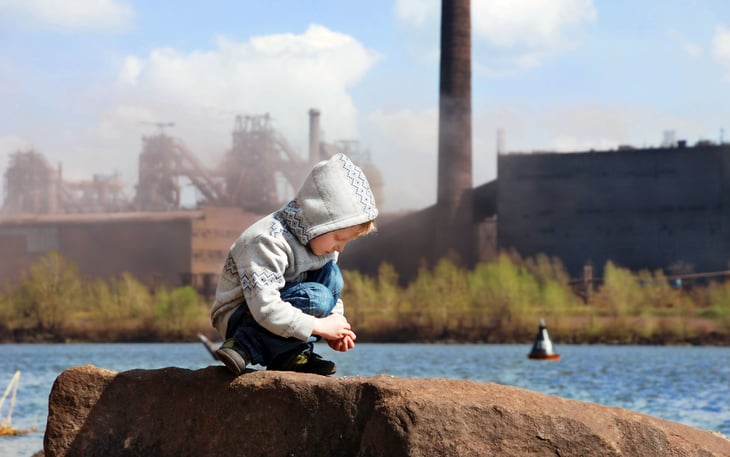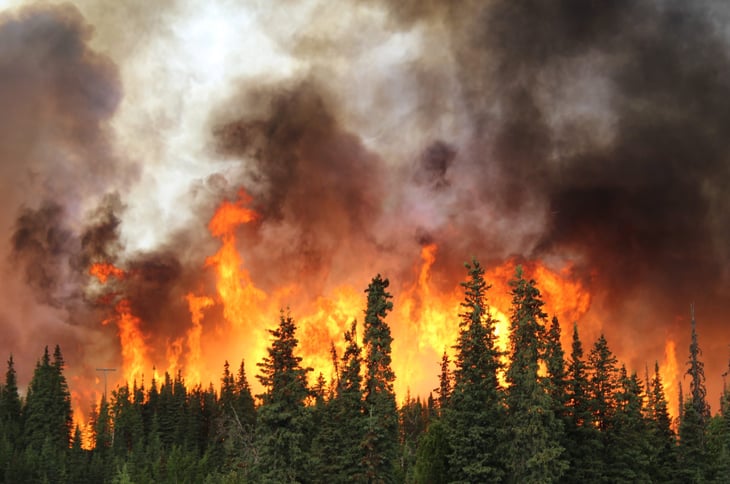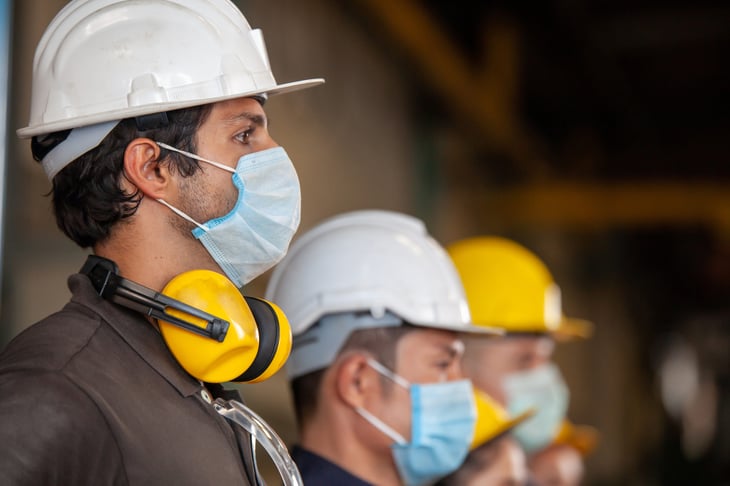The Trump administration’s deep cuts to the federal workforce are sending shockwaves through agencies that protect public health, national security, and everyday safety.
From nuclear weapons oversight to preventing wildfires, these layoffs aren’t just about reducing government size—they could have real, life-threatening consequences. Here’s a closer look at five job cuts that could put Americans at risk.
1. Nuclear security jobs slashed, raising serious risks

The U.S. government is responsible for keeping its nuclear stockpile safe and secure. So why were 350 employees—including experts handling nuclear warheads—suddenly fired?
The National Nuclear Security Administration (NNSA), which oversees America’s nuclear arsenal, was blindsided by a wave of layoffs, hitting places like the Pantex Plant in Texas, where nuclear warheads are assembled and dismantled.
While some of the firings were later reversed, the damage was done. Experts warn that this kind of disruption weakens national security, making it harder to maintain the safety of America’s most dangerous weapons.
When national security is on the line, financial security matters too. Protecting your savings with a diversified portfolio—including assets like gold—can be a smart move in times of uncertainty.
Pro Tip: Protect your wealth with an asset that can hedge against the damaging effects of a recession and financial calamity. Open a gold IRA today.
2. FAA layoffs could make flying even riskier

If you’ve flown recently, you know air travel is chaotic. Now, imagine that chaos with even fewer safety workers.
Hundreds of FAA employees—air traffic specialists and safety technicians—were suddenly let go. These workers maintain systems that prevent midair collisions and ensure safe flights.
The layoffs came weeks after a deadly D.C. plane crash, sparking safety concerns. Experts warn fewer staff could mean slower responses in emergencies.
Travel is stressful enough without unexpected delays or disruptions. A solid travel insurance policy can protect you from costly emergencies or cancellations.
Pro Tip: Medical emergencies abroad can cost up to $30,000, while trip cancellations could drain your savings. Protect your journey now.
3. CDC ‘disease detectives’ fired, weakening outbreak response

When a disease outbreak hits, the CDC’s Epidemic Intelligence Service (EIS)—also known as the “disease detectives”—jumps into action. But now, hundreds of them are unemployed.
More than 1,300 CDC employees, including disease trackers and lab specialists, were fired overnight. These workers are the first line of defense against deadly outbreaks, monitoring new viruses and bioterror threats.
Without these specialists, future outbreaks—whether of flu, food poisoning, or something worse—could spread faster and further before officials can contain them.
Staying on top of your health is more important than ever, especially when government health protections are weakened. Early screenings can help catch health issues before they become serious.
Pro Tip: Life Line Screening reveals hidden risks so you can act early. Book a screening today and have peace of mind.
4. EPA cuts could mean more pollution, fewer cleanups

The Environmental Protection Agency (EPA) is supposed to keep America’s air and water clean. But thanks to mass layoffs, hundreds of employees tasked with enforcing pollution laws and overseeing toxic site cleanups are gone.
Some of the fired workers were overseeing Superfund projects—programs that clean up hazardous waste sites in communities across the U.S. Without them, those cleanups could stall, allowing dangerous contamination to spread.
States may try to fill the gaps, but many lack the resources to take on major environmental disasters. The bottom line? More pollution, fewer protections, and communities left to fend for themselves.
Environmental disasters aren’t the only unexpected costs that can drain your savings. For homeowners, having the right home insurance can provide critical financial protection.
Pro Tip: Why pay more for home insurance? Compare quotes from top providers today and make sure you’re not getting ripped off.
5. Wildfire prevention slashed at the worst possible time

Every year, wildfires tear through the West, destroying homes and lives. You’d think this would be a bad time to lay off thousands of wildfire prevention workers—but that’s exactly what happened.
The U.S. Forest Service fired around 3,400 employees, including those who maintain firebreaks, clear brush, and coordinate emergency response efforts.
With climate change making wildfires bigger and more frequent, this move could be catastrophic. Fewer workers mean slower response times, more destruction, and higher recovery costs.
Cutting these jobs puts lives on the line

Government layoffs happen, but cutting experts responsible for nuclear security, air safety, disease outbreaks, pollution control, and wildfire prevention? That’s not trimming bureaucracy—that’s gambling with public safety.
The fallout from these cuts may not be immediate, but the risks are real. When the next disaster strikes, will enough trained professionals be left to respond?





